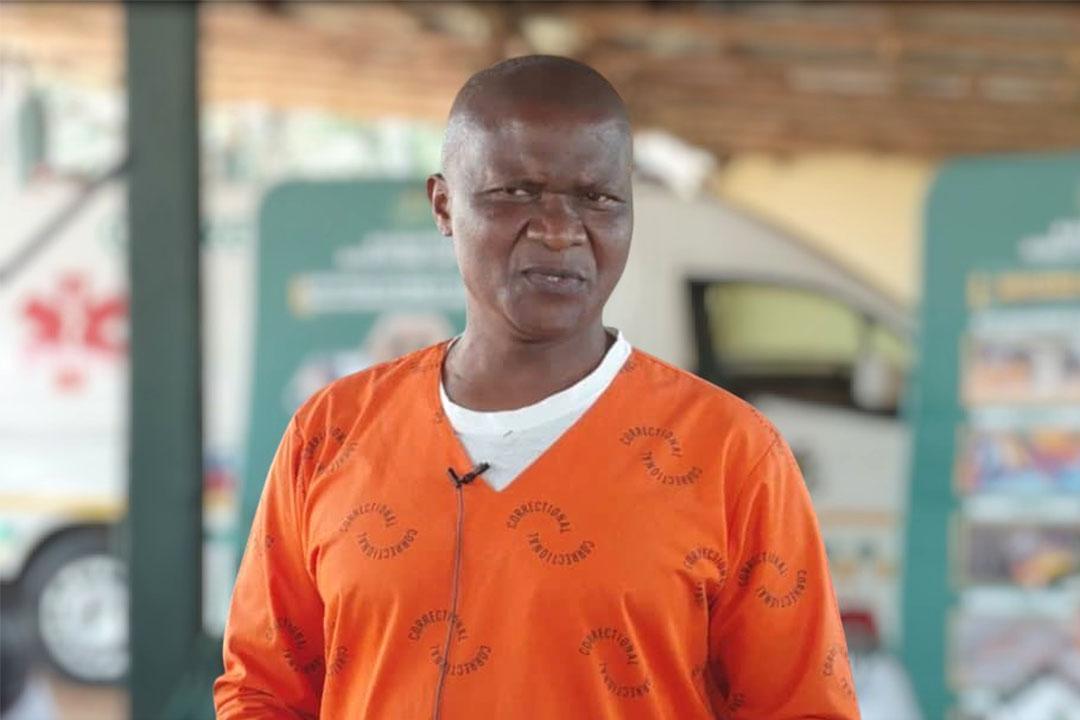Africa-Press – Eswatini. His Majesty’s Correctional Services (HMCS) has celebrated one of its most remarkable rehabilitation successes – the transformation of a man who entered prison with only a Grade 4 education into a bachelor’s degree graduate.
Boyce Bhekinkosiyezulu Gama, aged 57, arrived at the then prison in the early 1990s before the institution adopted its modern correctional model. Convicted of the murder of public transport businessman Malangeni Dlamini of Malangeni Bus Service near Siphofaneni, Gama was sentenced to death in 1993.
For eight years he lived under the weight of a pending execution – until His Majesty King Mswati III granted him royal pardon in 2001, commuting his sentence to life imprisonment. By that time, Gama had already undergone a personal turning point: in August 1997, he had converted to Christianity and written to the Dlamini family to ask for forgiveness.
Speaking during a media briefing at Matsapha Correctional Centre on Tuesday, where HMCS was announcing the conditional release of 12 inmates, Gama said the family’s acceptance of his apology gave him “emotional and spiritual freedom”.
“Once the family forgave me, I was no longer imprisoned in my heart. I could finally begin to rebuild myself,” he said.
Education Behind Bars
When Gama entered the correctional system, he was a 22-year-old man who had never progressed beyond Grade 4. Today, he is preparing to receive a Bachelor’s Degree in Theology, Psychology and Biblical Studies from a United States-based institution, in addition to several diplomas obtained while in custody.
He credits the HMCS rehabilitation and education programmes for enabling him to study, transform his thinking and develop a new purpose in life.
“Many people think HMCS programmes do not work because some inmates reoffend and return. But it is not the system that fails – it is individuals who choose not to apply what they learn,” he argued.
He compared rehabilitation to spiritual teaching: “Even God does not force anyone to follow His ways. It is a personal choice.”
A Changed Institution
Gama’s journey reflects the evolution of His Majesty’s Correctional Services, which has shifted from a purely punitive prison model to a correctional and human-development approach focused on skills, education, faith, and reintegration.
HMCS now offers literacy classes, vocational skills, counselling, agricultural training, and accredited academic opportunities – all designed to reduce reoffending and produce productive citizens upon release.
Gama says he is living proof that the system works when inmates commit to change.
“I do not want to disappoint God, Their Majesties, or HMCS. They have shown me mercy. Now I must honour that mercy by helping others stay out of prison.”
Life After Release
Although his life sentence was conditionally relaxed, Gama remains under strict supervision and is expected to complete his sentence in 2035. He hopes to use the remaining years to serve communities across Eswatini by speaking especially to young people about crime prevention, drug abuse and moral values.
He has requested permission from HMCS to continue community outreach work in schools and Tinkhundla centres, saying he wants his past to be a lesson for others.
“If I can stop even one child from ending up where I was, then my life will have meaning,” he said.
Release Conditions
Under the terms of his conditional release, Gama must:
Report regularly to correctional programme officers
Perform authorised community service
Remain crime-free and avoid weapons
Stay within approved residential boundaries
Surrender his passport and avoid foreign travel
Refrain from political activity, public speaking or media interviews without permission
Avoid all criminal associations or disorderly conduct
Despite being only two years away from retirement age, Gama says he believes it is never too late to rebuild. “I came in with nothing – not even education. I am leaving with a purpose. That is the power of forgiveness and correction.”
For More News And Analysis About Eswatini Follow Africa-Press







